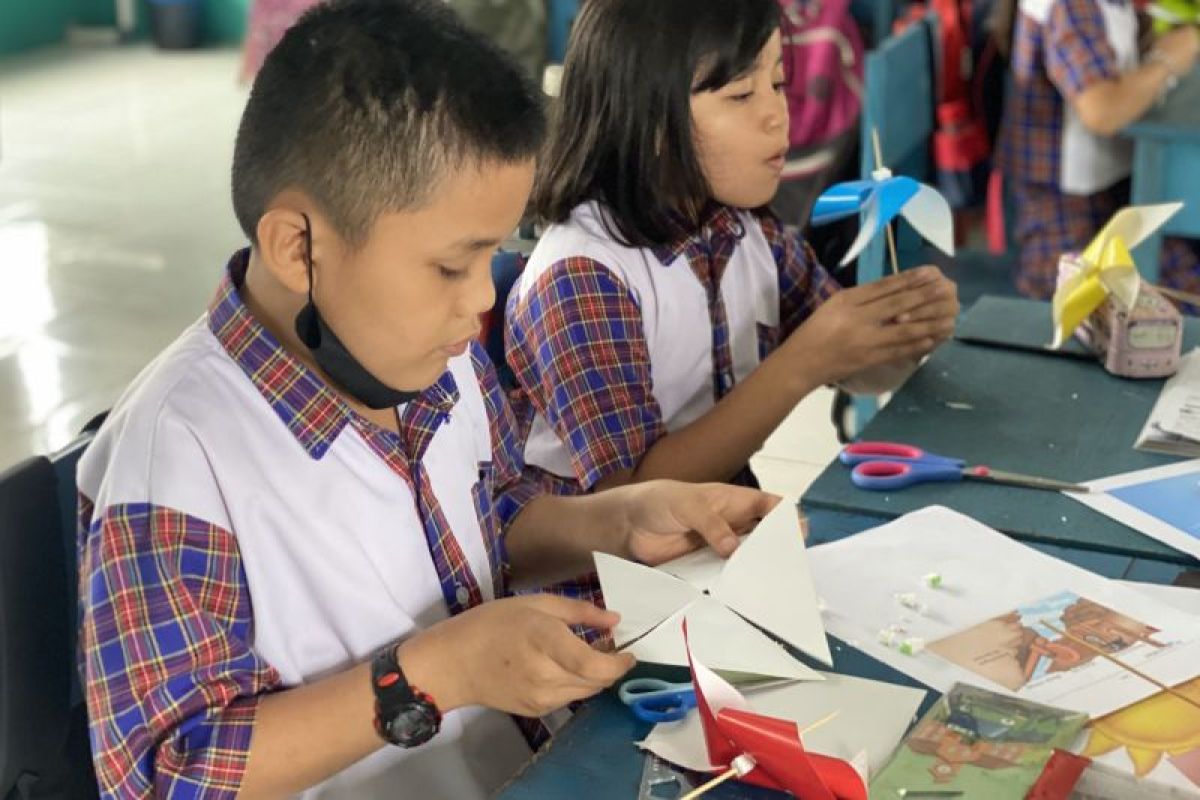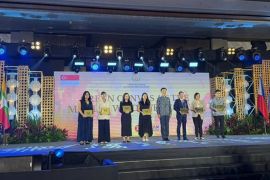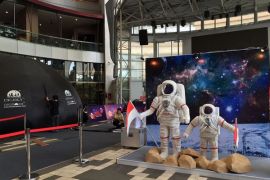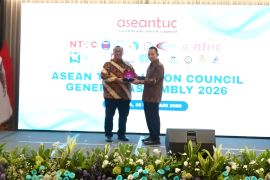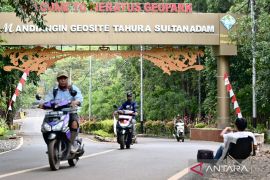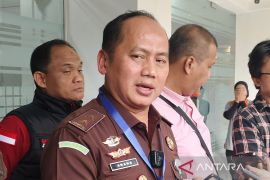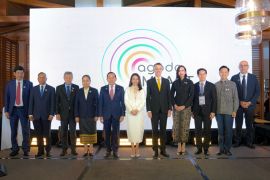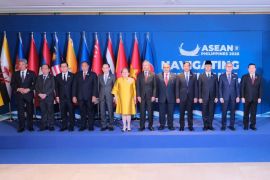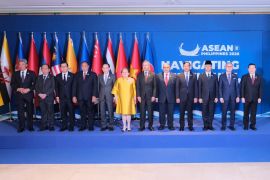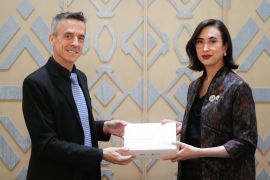He made the statement on July 26, 2023, during the Southeast Asia Policy Dialogue on Early Childhood Care and Education (SEA PD on ECCE).
The concern over early childhood education has been considered appropriate, especially among policy makers, as the younger generation is the one that is expected to take the lead in achieving a bright future for the world.
The urgency of early childhood education was one of the topics of discussion brought up by the 2023 ASEAN chair Indonesia during the SEA PD on ECCE, which was held in Jakarta on July 25 and 26, 2023.
The forum was organized by the Ministry of Education, Culture, Research, and Technology and focused on the development and improvement of early childhood education in Southeast Asia, a region that is estimated to have an enormous demographic dividend.
Indonesia is currently entering the demographic dividend phase, that is, a period when its working-age population is larger than the non-working-age population.
Indonesia's working-age population accounted for 190.83 million or 69.3 percent of its total population of 275.36 million as of June 2022.
Indonesia's demographic dividend is projected to continue to rise in 2030–2040 since, as of June 2022, 67.16 million citizens, or 24.39 percent of the population, were aged 0–14 years and had yet to reach the working age.
The data, which was obtained from the Home Affairs Ministry's Directorate General of Population and Civil Registration, showed that the population that has not entered the working age group yet will continue to grow and spur an additional wave in Indonesia's demographic dividend.
The next generation will play a key role in Indonesia's, even ASEAN's, journey toward becoming a global center of growth. Thus, designing the best education for early childhood is a joint responsibility.
The important role and long-term impact of early childhood education and services have been widely acknowledged, namely as the basis for health and well-being, success in education, and economic and social productivity.
Considering ASEAN's demographic dividend, providing quality education for children in the first years of their lives is a meaningful investment for the growth and progress of the region.
Early childhood development is a part of Sustainable Development Goal (SDG) Number 4, namely ensuring that all children have access to quality early childhood development and preschool education as preparation for entering elementary education.
Speaking to the 2023 SEA PD on ECCE delegates, Minister Makarim emphasized that from an early age, children must get the best learning according to their age.
A good learning experience can be obtained through a comfortable atmosphere. To this end, the Education, Culture, Research, and Technology Ministry earlier launched Episode 24 of the Independent Learning program entitled "Fun Transition from Early Childhood Education to Elementary School."
The policy was issued to correct misconceptions in the community regarding the ability to read, write, and count (calistung) during early childhood education and early grades of elementary education.
There are three targets of the program, namely eliminating calistung tests from student admissions, implementing School Environment Introduction Period (MPLS), and implementing a fun learning system to build foundational skills.
Meanwhile, teachers are expected to implement a learning strategy that is active, explorative, filled with positive interactions, and fun so that children's foundational skills can be built maximally in stages.
The targets of the ministry's program are in line with the ASEAN 2021–2025 work plan for the education sector, namely ensuring that children in early childhood age gain access to equitable and quality education by prioritizing integrated and holistic early education.
Integrated and holistic early education also includes paying attention to gaps in bolstering early childhood education development as well as other issues, such as nutritional fulfillment and parenting styles.
The improvement of early childhood education should also not be carried out individually, but requires inclusive cooperation from several stakeholders, such as parents, teachers, the community, and the government.
Improving the teachers' ecosystem, namely by fulfilling teachers' rights, including tackling the issue of lack of appreciation for teachers, has become an inevitable aspect of creating quality education for children during early childhood.
Some examples of the lack of appreciation for teachers are low salaries and lack of opportunities to improve professional development, besides burnout and stress, gender inequality in leadership, and racial and ethnic disparities.
During the second plenary session of the SEA PD on ECCE on July 25, 2023, a representative of the University of Auckland, Marek Tesar, said that if teachers' ecosystem is not good, it could potentially disrupt the quality of early childhood education services.
Declaration on transforming early childhood education
Indonesia's success in hosting the 2023 SEA PD on ECCE is reflected by the joint commitment by education ministers from 11 countries in the Southeast Asian region to accelerate the transformation of early childhood education.
The ASEAN Leaders' Declaration on Early Childhood Care and Education in Southeast Asia is a strong and important document that marks the leadership of Southeast Asian countries in translating the UNESCO Tashkent Declaration.
The declaration consists of three points. The first is investing at least 10 percent of total education expenditure in early childhood education and ensuring that salaries and working conditions of the preschool workforce are at least equivalent to those of primary education teachers.
The second point is guaranteeing the obligation of at least one year of free quality preschool education, as stipulated in SDG 4.2.
Under the third point, leaders have committed to progressively improve early childhood education services by providing equitable and adaptive support to vulnerable and marginalized children and realizing inclusion and gender equality.
The three points of the declaration are expected to accelerate the transformation of early childhood education, especially in the context of the global learning crisis caused by the COVID-19 pandemic.
The post-pandemic era has motivated ASEAN to expand children's access to quality education, considering the strong potential of early childhood education in improving the quality of children's lives.
Moreover, the pandemic has presented unprecedented opportunities to innovate and accelerate progress toward a more robust system.
For early childhood education, countries around the world are trying to accelerate the quality improvement of programs, utilize technology for interactive learning, and integrate social and emotional development.
The transformation of early childhood education envisages services that are more inclusive, strong, and adaptive after the disruption caused by the COVID-19 pandemic.
As for Indonesia, the director general of early childhood education, elementary education, and middle education at the Ministry of Education, Culture, Research, and Technology, Iwan Syahril, said that his side is focusing on multi-sectoral participation and collaboration.
The focus is on accelerating the implementation of high-quality early childhood education initiatives and promoting comprehensive solutions and sustainable progress in early childhood education.
The commitments and declarations made in the SEA PD on ECCE will guide the recommendations produced at the ASEAN Summit in September 2023.
"We are very optimistic that it will open ways for early childhood standards improvement across Southeast Asia and empower the government to prioritize and invest in the future of children in the ASEAN region," Syahril remarked.
Related news: Indonesia urges ASEAN to increase investment in education
Related news: Inclusivity main focus of PAUD transformation: ministry
Editor: Rahmad Nasution
Copyright © ANTARA 2023
